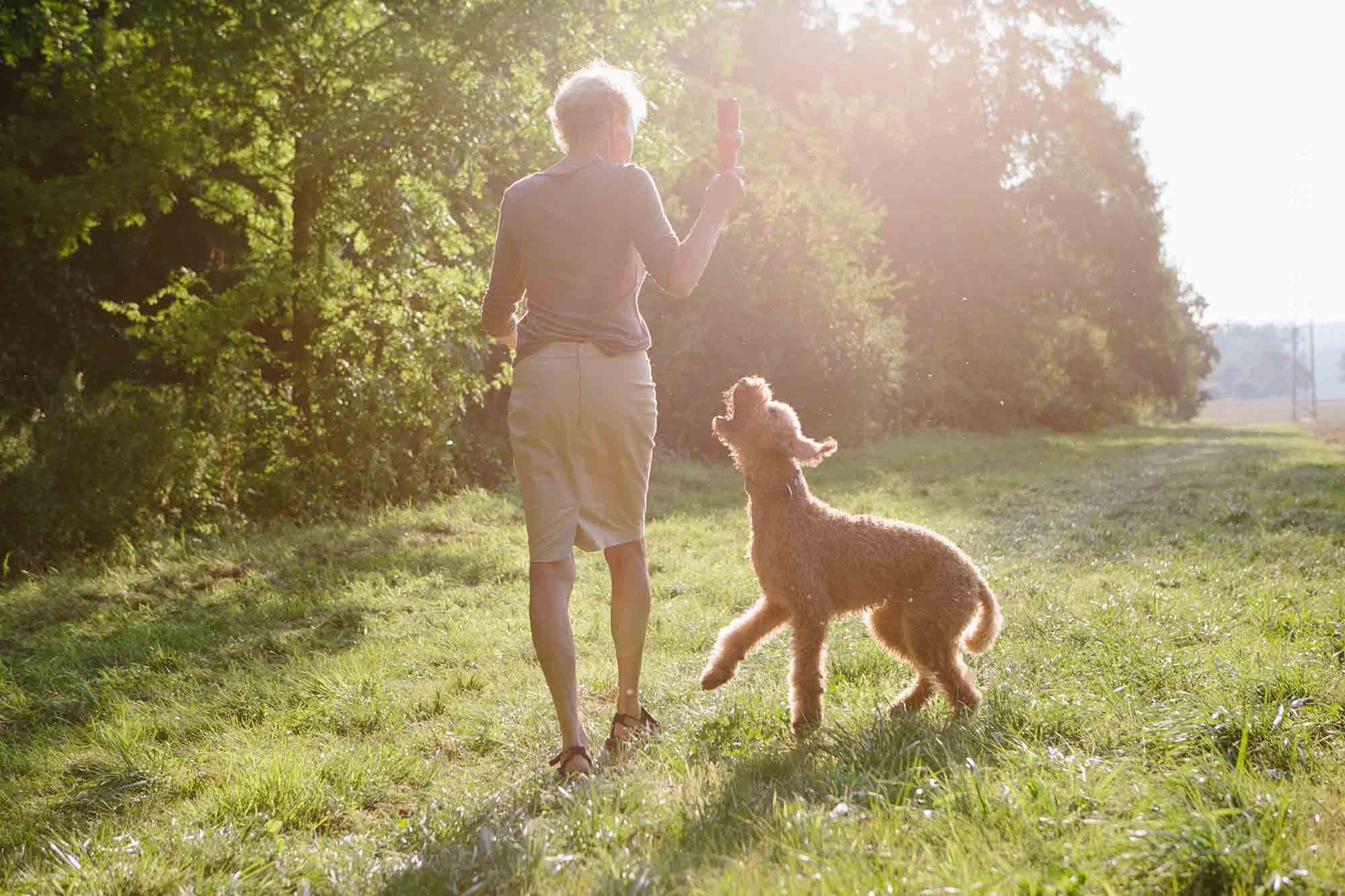Growing Old Gracefully: Helping Senior Dogs Enjoy Their Golden Years
 Whether you’ve been with your senior dog since puppyhood, or adopted a wonderful pet during their adult years, you know by now that older pets have a lot to offer.
Whether you’ve been with your senior dog since puppyhood, or adopted a wonderful pet during their adult years, you know by now that older pets have a lot to offer.
Making your senior dog’s golden years as wonderful as possible is your top priority as you and your best pal face this special time hand in paw, and it all starts with understanding the unique needs of an older pet.
Veterinary Care For Senior Dogs
Just like older humans, senior dogs are at increased risk for a variety of illnesses and conditions, including:
- Diabetes
- Heart disease
- Arthritis
- Cancer
- Dental disease
- Cognitive problems
- Vision and hearing loss
- Intestinal difficulties
Pets age much more rapidly than humans, making regular checkups more important than ever. Older pets should be seen by their regular veterinarian for wellness examinations and lab work more often than younger animals; generally twice per year, or more as recommended by your veterinarian.
Four-Legged Fitness
Regular exercise is imperative when it comes to keeping a dog of any age healthy and enjoying life. Your dog may be slowing down a bit, but the need for movement and the desire for adventure is still there. Exercise doesn’t need to be strenuous to reduce joint pain and stiffness associated with arthritis, and can be as simple as a quick game of fetch or a leisurely evening walk.
Changing Nutritional Needs
Older pets tend to put on weight more easily than younger pets thanks to a slowing metabolism. Added weight can be hard on aging bones and joints, and puts pets at risk for a variety of health issues. Along with regular exercise, many seniors do well with a diet that’s lower in calories as well as higher in protein and essential vitamins and minerals. Your veterinarian can work with you to come up with a diet and nutrition plan that’s right for your pet.
Making Life Comfy
Senior dogs are more susceptible to extremes in temperature and humidity, so care should be taken to make sure they are protected from the elements while outside. Provide plenty of shade and fresh water in the warmer months, and keep them indoors as often as possible during winter. A warm, waterproof coat or vest can help during those frigid winter walks.
A little extra TLC goes a long way when it comes to your pet’s comfort as well. There are plenty of products on the market today aimed at making life easier for pets with mobility issues, such as raised beds and feeding dishes, orthopedic beds, pet ramps and stairs.
Those Happy Golden Years
All of this extra attention will help to ensure a good quality of life for your pet as they age. After all, senior pets are often our best and most loyal friends and companions! Please don’t hesitate to contact Oakland Veterinary Referral Services if you have any further questions.


